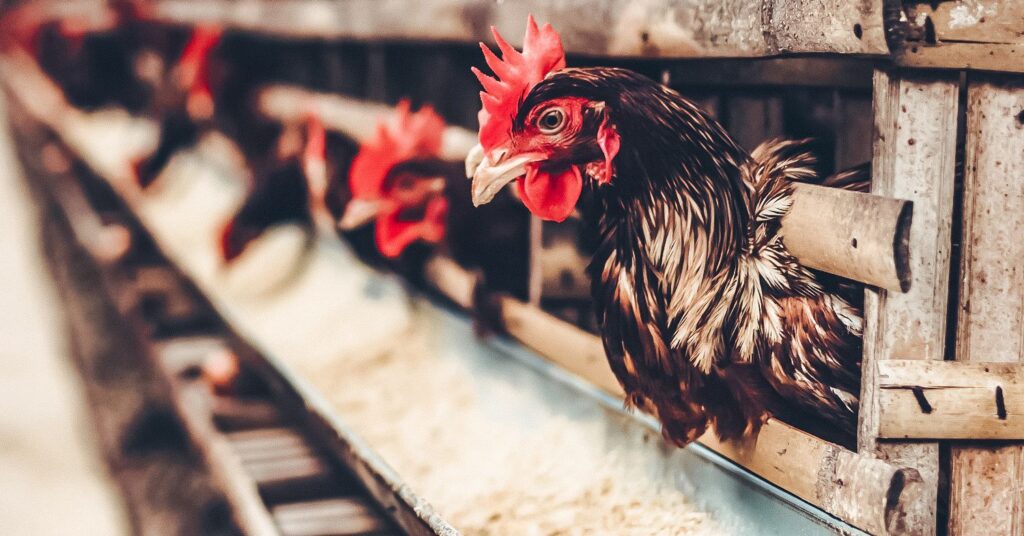Updated March 24, 2021. Nestlé has gone cage-free in the EU. And, together with Unilever, the food industry giant has partnered with Compassion in World Farming (CIFW) to request the phasing out of all caged hens from the European agricultural sector.
The news follows Nestlé’s announcement yesterday that it met its 2017 target of 100 percent cage-free eggs in all EU food products. Following this, the company now calls on key EU policymakers to move away from the use of cages in animal farming, starting with laying hens.
“We are proud to have achieved 100% cage-free eggs in our food products across Europe,” said Magdi Batato, Nestlé Executive Vice President and Head of Operations, in a statement. “We fully support the Compassion in World Farming initiative to outlaw cages for laying hens.”
End the cage
In a letter to MEPs, Nestlé and Unilever — in addition to several other food producers and retailers including IKEA, ALDI Nord, and Mondelēz International — said that they “commend the aims” of the CIWF-managed End the Cage Age Initiative.”
As of 2018, over 170 European NGOs joined the End the Cage Age initiative, and its European Citizens’ Initiative (ECI) collected 1.4 million verified signatures calling for a ban. The initiative is supported by more than 140 scientists and public figures, including celebrated anthropologist and conservationist Jane Goodall.
“A wealth of animal welfare science research demonstrates that animals suffer in cages and that well-managed cage-free systems provide them with a much better quality of life,” reads the letter of support.
“Companies moving away from eggs from caged hens have paved the way for changing how EU farmed animals are kept,” it continues, adding: “Cage-free systems are widespread, economically viable, and provide better living conditions for hens.”
Nestlé Cage-Free
Caging animals is a form of factory farming. The global meat industry demands high production, and caged hens save space — allowing for a higher overall “yield” of farmed animals. But this also inhibits normal behaviors, and hens who survive debeaking, disease, and other chronic issues, are typically slaughtered after just two years. In contrast, some wild chickens can live for over a decade.
The food industry raises approximately 413.2 million laying hens across Europe. Between them, they produce 6.9 million tonnes of eggs or egg-related products every single year. And according to CIFW, just 50.5 percent of these animals live cage-free.
Public opinion is changing, and the letter also highlights growing popular support for legislative action. Approximately 94 percent of Europeans believe in the importance of protecting farmed animals’ welfare. While 82 percent think that farmed animals require more comprehensive protection.
“The revision of animal welfare legislation presents the ideal opportunity for a legal basis to end the use of cages in EU animal farming,” continues the letter. “Starting with caged hens, and supporting farmers in the transition. We are ready and willing to share our expertise and collaborate on achieving that goal.”
However, until relatively recently, Nestlé did source eggs from caged hens. And while the company also recently announced plans to source only cage-free eggs for all its food products globally by 2025, “high-welfare” animal producers can struggle to meet the growing global demand currently catered to by factory farming.
As per its own release, Nestlé still uses approximately 4,500 tons of eggs annually for its European food brands alone.


